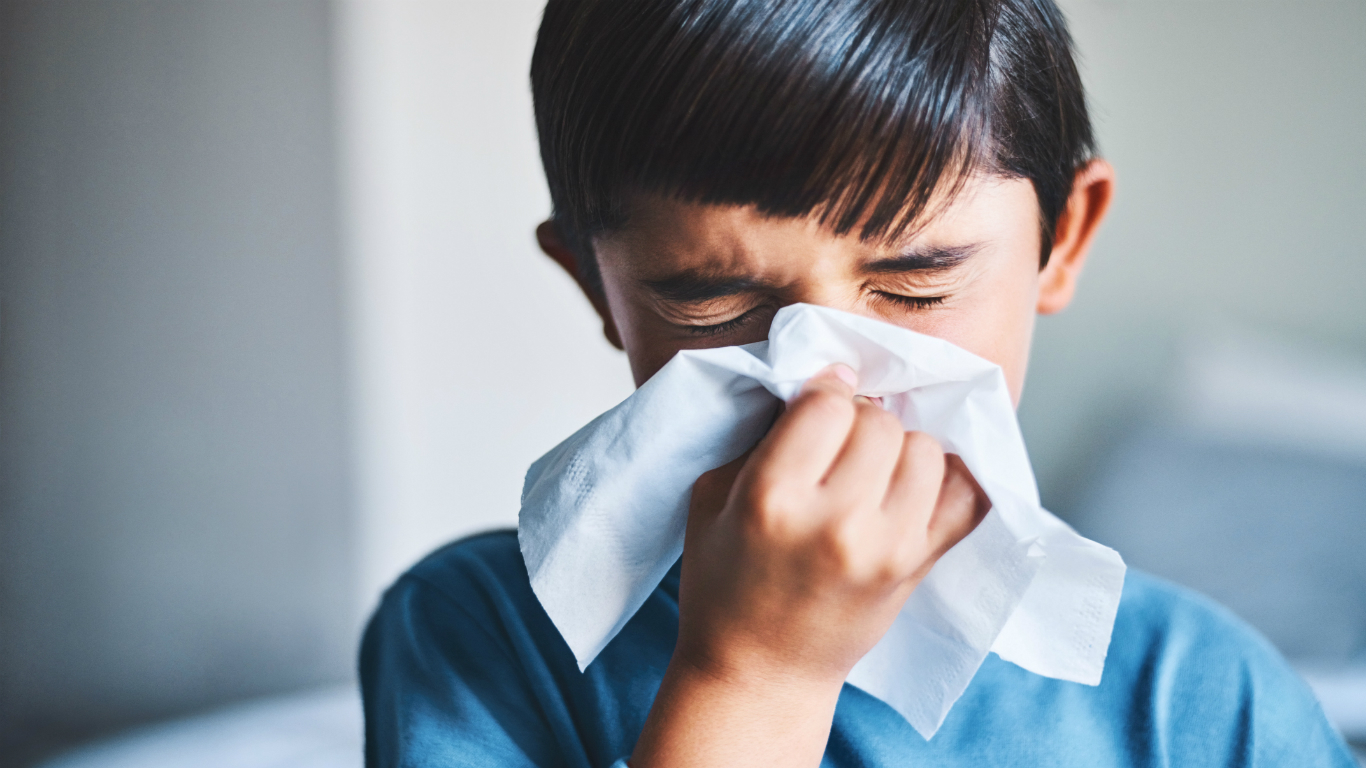News
Study: Susceptibility to Disease and Mental Problems May Develop in Childhood

Published:
Last Updated:

A new study by researchers at the universities of Zurich and Lausanne suggests that children who suffer from multiple allergies or who experience trauma (through viral or bacterial diseases or psychosocial stress) are particularly susceptible to chronic inflammatory diseases and mental disorders as adults. (This may come as bad news to those who live in the worst cities for people with spring allergies.)
Scientists analyzed epidemiological data from a cohort of almost 5,000 people born in the mid-20th century, dividing them into five groups according to biomarkers (such as white blood cell counts) as well as their histories of psychiatric problems and chronic inflammatory diseases in adulthood.
The largest group, termed neutral, had been relatively free from childhood ailments, while about 20% of those studied, termed resilient, had very strong immune systems and were resistant to common childhood diseases like mumps and measles — the latter a disease once almost vanquished but now returning, and a serious problem in some countries.
A mixed group of participants in the study had allergies and a bacterial disease at some point; a so-called atopic group had several allergies but no traumatic disease. The smallest group, representing only 5% of participants, experienced childhood trauma. This last group had a low incidence of early infections but was more likely to develop psychiatric issues and inflammatory diseases later in life.
The mixed and atopic groups also had increased risk of these conditions, while the neutral and resilient groups remained largely free from them.
The human immune system develops during childhood, and the theory is that improved hygiene and changes in agriculture and urbanization, resulting in decreased exposure to various microbes over the years, have, ironically, had an adverse effect on certain aspects of human health. The neutral and resilient groups were larger among those born before many of these changes were implemented. Whether a child later develops mental or inflammatory disease, the signs can be subtle, even as subtle as biting your nails or scratching your skin a lot.
Retirement can be daunting, but it doesn’t need to be.
Imagine having an expert in your corner to help you with your financial goals. Someone to help you determine if you’re ahead, behind, or right on track. With SmartAsset, that’s not just a dream—it’s reality. This free tool connects you with pre-screened financial advisors who work in your best interests. It’s quick, it’s easy, so take the leap today and start planning smarter!
Don’t waste another minute; get started right here and help your retirement dreams become a retirement reality.
Thank you for reading! Have some feedback for us?
Contact the 24/7 Wall St. editorial team.